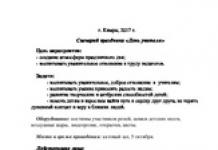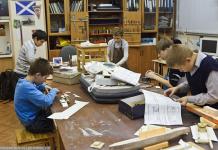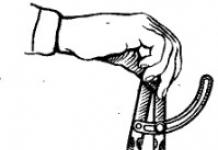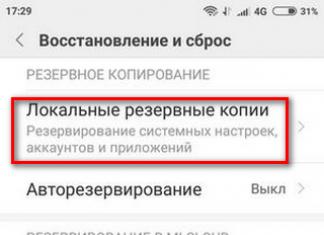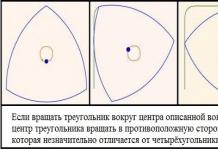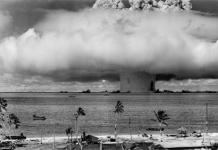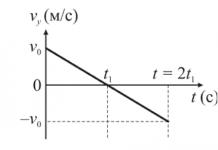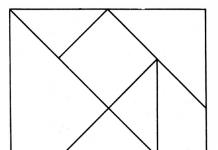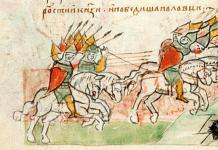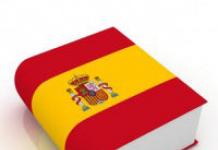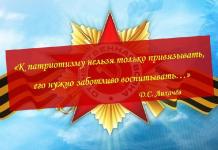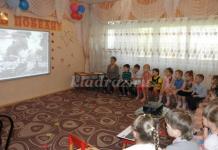Moscow, September 1812. Robberies
The robberies begin on the very first evening of the presence of the French in the city. Even a fire cannot stop them. From basements, from the ruins of burnt houses, warehouses and shops, they drag everything: paintings, vases, rum, sugar, tea, wine, flour, fur coats. They rob churches, pouring silver and gold stripped from icons into ingots. Muscovites are robbed, they can force them to take off their warm clothes or boots right on the street.
Soldiers from units stationed outside Moscow go to the city as if they were fishing. A French memoirist testifies: “It was impossible even to think about maintaining order. Everyone who did not stand under arms and did not directly perform their official duties left using various pretexts. The boilers stood without fire and cooks; those sent for firewood, straw or water did not return. The confusion reached the point that even some of the patrols fled. "
The regimental commanders turn a blind eye to the robberies: for the soldiers it is the only source of food. Russian peasants, unlike European ones, do not bring goods to the markets of the captured city. The few who dared to do this were immediately robbed by the French, and there were no more willing ones. For food, the French have to fight among themselves: the soldiers of the corps, standing farther from the city, take the loot from the soldiers of the neighbors, and the guards take away from everyone. As the French memoirists write, in the end, Napoleon has to establish a schedule of robberies, which are officially called the preparation of food supplies: different corps have the right to send detachments to Moscow for loot on certain days: day - Old Guard, day - Young Guard, day - Davout corps and so on, one at a time.
Marshal Berthier to Marshal Davout:
"The Emperor sees with displeasure that despite the order given yesterday to stop the robbery, the robbery was carried out today in exactly the same scale as before."
“We walked along an excellent road to the palace called Petrovsky, where the Emperor stayed ... Finally, we arrive at a bivouac located just opposite the city. We clearly see a huge pyramid, which was formed by furniture and pianos removed from Moscow. "
Moscow, Petrovsky Park, September 1812
In the park near the Petrovsky Palace, there was one of the camps French troops... Garden pavilions and dugouts dug around them were full of luxury: Persian carpets, Venetian mirrors, French furniture, furs, dishes and God knows what else from robbed Moscow houses were dragged into them.
From the memoirs of the French officer Eugene Labom:
“The headquarters, located with their generals around the palace, settled in English gardens, huddled in grottoes, Chinese pavilions, kiosks, garden pavilions ... In our camp you could see people dressed as Tatars, Cossacks, Chinese; some wore Polish cloaks, others the high hats of the Persians, Baskaks or Kalmyks. Thus, our army at this time presented a picture of a carnival. The army was terribly happy about the looted things ... people consoled themselves with good food and profits, which they obtained by selling all kinds of items they brought from Moscow ... Our camp did not at all resemble the army, but rather looked like a huge fair, where the military, transformed into merchants, sold for priceless precious things. People lived in terrible bad weather in the middle of the field, in the open, and at the same time they ate on porcelain plates, drank from silver dishes and generally possessed such luxury items that could only be imagined in a very rich and comfortable environment. "
Moscow, the bank of the Moskva River behind the Kaluga Gate
Ordinary Muscovites also lived in dugouts, parks and meadows. True, they did not eat on silver dishes. Food was obtained in vegetable gardens and in ruined houses, and they warmed themselves by the fires. Muscovite Elena Pokhorskaya recalled in her declining years how she lived for two weeks on the Oryol Meadow, on the banks of the Moskva River behind the Kaluga Gate: “As for food, we lived without need. All pastry shops remained open, and private storerooms, and rows. Take whoever wants what, especially in the ranks. They burned, but not all of them, and a lot of goodness remained in them. In our meadow, samovars were constantly boiling, or they would turn out the fire and cook some kind of stew. We did not consider it a sin to take provisions from the ranks and from the storerooms, because without that it would not have survived; we do not die of hunger. "
From the memoirs of the Marquis de Chaumbray:
“The fate of the residents who remained in Moscow became dire. Having left their houses, doomed to be burned, they wandered around the city, bending under the weight of the property seized with them, being subjected to the violence of the soldiers who, having insulted and robbed them, went in their barbarism to the extent that they forced them to carry the goods taken away from them to the camp. The need for mutual assistance forced them to join in crowds, which settled down together for the night in the open air. Exhausted from hunger and fatigue, they ate vegetables found in vegetable gardens. "

Moscow, Pokrovka street, September 1812
In 1812, the word "municipality" was first heard in Moscow. The appeal to the Muscovites promised: he "will take care of you, your needs, your benefit." The Moscow municipality, created by the French, was located in the Rumyantsev house on Pokrovka. Organ creation local government was entrusted to the former French consul in Russia Lesseps. 87 people served in the Moscow municipality, including 20 foreigners. Among the Russian employees of the municipality were not only merchants and officials, but also two courtyards and one freedman.
The Moscow merchant Pyotr Nakhodkin was appointed mayor, or mayor. When Lesseps informed him of this, Nakhodkin said: "As an honest man, I must first of all declare to you that I will never do anything against my faith and my Emperor." Astonished Lesseps replied: “The enmity of the Emperor Napoleon with the Emperor Alexander does not concern you; your only duty will be to oversee the welfare of the city. " Members of the municipality were required to wear a red ribbon over their shoulders, and the mayor had to wear a white belt. Eminent citizen Fyodor Frakman, merchant Pyotr Korobov and court councilor Bestuzhev-Ryumin were appointed as deputies of the mayor of Nakhodkin. After the French left Moscow, the cases of compatriots who collaborated with the occupiers were considered by a special Investigative Commission. The verdict acknowledged that their "guilt mostly consisted only of weakness of spirit, which did not allow them to persist with firmness against the threats and violence of the inhuman enemy." However, 22 municipal employees were assigned different punishments, the most severe - deprivation of ranks, nobility and exile to Siberia.
The Maroseyka - Pokrovka highway, it seems, was the main street of "French Moscow": at the beginning of it, in the Razumovskaya house, there lived the Governor-General Marshal Mortier, in the middle there was a municipality, and the Dolgorukovs' house housed the municipal police with 2 chief and 15 ordinary commissars ... Here, took place on September 12 trial over the "arsonists" who were sentenced to death.
Moscow, the bank of the Moskva River near the Novodevichy Convent
The French municipality was not a hindrance to the endless scenes of robbery and violence on the streets of Moscow. Their recollections of the merchant Anna Kruglova: “My aunt went to the monastery for something, and the soldiers chase after her. She ran to the river, and entered the water up to her throat. A soldier is standing on the shore, waiting for her to come out. And she was on her mind: she stood for an hour, chilled all over, but she overtired him: he left with annoyance. Then she climbed out of the water and came to us. "
Moscow, St. Catherine on Bolshaya Ordynka
Another eyewitness to the events of 1812 in Moscow recalled how he and his brother walked past the church of St. Catherine on Bolshaya Ordynka and heard groans and shouts: “Don't torture me; Better put to death! " Looking into the temple, the brothers saw a man with a thick black beard, standing between two soldiers holding his hands; the third pricked his bare back with the edge of a saber, saying: "Tell me, priest, where the church silver and gold are buried!" "The martyr, recalls the memoirist, from unbearable pain tore from the hands of the villains and screamed in a frenzy in a wild voice."
Moscow, Vysoko-Petrovsky monastery
Most of the churches in Moscow under the French were closed, and not only robbed, but also desecrated. In the Danilov Monastery and here, in Vysoko-Petrovsky, the French set up a slaughterhouse: the monastery courtyard was covered with caked blood, rotting entrails of animals were scattered everywhere, there was a butcher's shop in the cathedral church, a beaten bird and offal hung on nails driven into the iconostasis.

In the Church of the Nativity in Stoleshniki, the French cooked food, they threw icons into the fire under the cauldron. Horses were kept in the Trinity Church in Syromyatniki, and bulls in the Peter and Paul Church in Lefortovo. In the Kremlin, where Napoleon lived and order was maintained, the destruction of churches was also ordered. In the Assumption Cathedral, instead of a chapel, there were scales on which the gold and silver smelted from the stolen church treasures were weighed; on the iconostasis, the figures of the mined were noted, there were smelting forges and stables for horses nearby. In the Kremlin churches of the Savior on Bor and Nikola Gostunsky there were warehouses for oats, hay and straw. In the Verkhospassky Cathedral, the throne served as a dining table, and there were beds nearby. In the altar of the Cathedral of the Chudov Monastery, Marshal Davout made himself a bedroom. It is scary to think what the enlightened Europeans would still write if the Russian soldiers who entered Paris in 1814 robbed Notre Dame de Paris or set up a slaughterhouse in the church of Saint Sulpice. And if they are accustomed to calling Russians "barbarians", then what could they say about themselves?
Moscow, St. Louis
From the memoirs of Abbot Suryuga, rector of the Catholic Church of St. Louis in Moscow in 1812: “During the six-week stay of the French, I did not even see the shadow of Napoleon. He did not visit our temple and probably did not even think about it. Four or five officers of the old French families attended the service; two or three confessed.
During their stay here, up to 12 thousand of them died, and I buried, according to the rituals of the church, only one officer and a servant of General Grusha. All others, officers and soldiers, were buried by their comrades in nearby gardens. There is not even a shadow of belief in an afterlife in them. "
Moscow outskirts, September 1812
Increasingly, French robbers met with resistance from ordinary Muscovites. From the memoirs of a Moscow resident: “An enemy soldier broke into us. He had a long club on his shoulder; he grabbed his father by the collar. I ran up to this robber from behind, snatched the club from him, and grabbed him on the back of the head. He fell; we all rushed at him, settled with him and dragged him into the pond. We threw many uninvited guests into this pond and into both wells. "
From the memoirs of a Moscow resident: “I walk once in the early morning along the Maiden's Field; a man came out of the gate of the house, he must be a bourgeois in his dress, and a Frenchman walks in the field and calls him: hello. The Frenchman shouts ale, and ours beckons him with his hands, nods his head and shows him to follow him; and he himself ran back to the gate. The Frenchman is behind him. I see ours ran to the well and waving his hands, pointing to the well. As the Frenchman bent down, our man put both hands on his neck and threw him into the well. Ours went out of the gate again, walked along the fence and stopped beside me. What did he say he saw? At least one less! And I say: why did you ruin him? After all, he did not attack you. He looked me straight in the eyes and said: "They must have not taken your wife away from you, but none of yours is under the bullets, but you have not seen horses in our churches!"
Stendhal. Report from Moscow in 1812:
"The charming city, one of the finest temples of pleasure, was turned into black fetid ruins, among which a few unfortunate dogs and a few women roamed in search of food."
Leo Tolstoy, "War and Peace", Moscow
Stendhal's lines, dedicated to the Moscow campaign and other wars of Napoleon, will be reread more than once by another great writer, Leo Tolstoy. “I owe him that I understood the war. In everything that I know about the war, my first teacher was Stendhal, ”Tolstoy would write later. The writer's father, Nikolai Ilyich, with the rank of lieutenant colonel, took part in the Patriotic War of 1812 and the foreign campaigns of the Russian army. The images of Moscow in 1812, captured on the pages of War and Peace, thanks to Leo Tolstoy, will enter the golden fund of world literature.

Everyone knows that the house of the Sollogubs on Povarskaya Street is depicted in War and Peace as the House of the Rostovs. And on Vozdvizhenka, 9, the house of the old prince Bolkonsky from "War and Peace" has been preserved. It is here, "to the old gloomy house on Vozdvizhenka," that a carriage arrives with Natasha Rostova, her father brings her to meet the old prince. The acquaintance fails: at first the owner does not go out to the guests, and then appears in a non-secular manner: in a dressing gown and a cap, he looks around Natasha, but does not say a word to her. In reality, this house belonged to Prince Nikolai Sergeevich Volkonsky, Tolstoy's maternal grandfather, who became the prototype of the old man Bolkonsky in the novel. Tolstoy knew this house and in his youth often visited it.
Moscow, Kremlin, September 1812
After the Moscow fire stopped, Napoleon returned to the Kremlin. He spent another month in Moscow. Memoirs of the French paint a strange picture: the emperor, usually cheerful and active, seemed to have fallen into prostration. The marshals bombarded him with questions and plans: what to do next, why are we sitting in burned-out Moscow, we must choose - to go to Petersburg, return to Smolensk and Lithuania, break through to Ukraine. Napoleon gave no order. The situation demanded action: Kutuzov, crossing from the Ryazan road to Kaluga, was building up his strength. Partisans and peasant detachments ruled over the extended French communications between Smolensk and Moscow, intercepted couriers, and attacked individual units. The army, practicing daily robberies instead of fighting, melted away and turned into an armed crowd. Winter was approaching. And the emperor was either doing what could wait - personally conducting parade reviews, editing theatrical regulations, or doing nothing.
From the memoirs of Count Segur:
“We noticed that he tried to prolong the time spent at the table. His lunch used to be simple and ended very quickly. Now he seemed to be trying to forget himself. Often he reclined for hours on the couch, as if in some kind of numbness, and waited with the novel in his hands for the denouement of his tragic fate. "
Napoleon, war and peace,Moscow
Without waiting for proposals for peace from the Russian tsar, Napoleon begins to seek peace on his own. Not only is the omnipotent emperor forced to ask for peace from the Russians, whom he considered already defeated - he is looking for the assistance of random people who turned up to him in captured Moscow. First, he asks Major General Ivan Tutolmin, head of the Orphanage, who did not abandon the wounded lying in it, to send an official to St. Petersburg with a letter: Napoleon is ready to negotiate peace. Then they bring to him the retired captain of the guard Ivan Yakovlev, father of Alexander Herzen, who did not have time to leave Moscow. Napoleon promises to deliver him with his family to the Russian outposts, but asks Yakovlev to convey a personal message to Emperor Alexander. Napoleon writes to the Russian Tsar from his captured palace, but it seems that he is almost ingratiating himself.
From a letter from Emperor Napoleon Bonaparte to Emperor Alexander I:
“I am waging a war with your Majesty without any bitterness. A simple note from you, before or after the last battle, would have stopped my movement and, in order to please you, I would have sacrificed the benefit of entering Moscow. If your Majesty, at least partly retains the old feelings for me, then you will read this letter favorably. "
Petersburg. War and Peace

Alexander doesn't answer. With the next proposals for peace, Napoleon sends General Loriston to Kutuzov's headquarters. “I wish peace,” he admonishes the envoy, “I need peace; I certainly want to conclude it, if only the honor was saved. " Loriston's mission is futile. Napoleon knows that at the Russian court from the very beginning of the war the "party of peace", inclined to compromise, and the irreconcilable "party of war" have been fighting. The "Party of Peace" is influential: the chancellor, Count Rumyantsev, Count Arakcheev, Minister of Police Balashov, Grand Duke Konstantin Pavlovich, Empress Maria Feodorovna. But Kutuzov does not belong to her. And Emperor Alexander knows that after the burning of Moscow, peace negotiations with Napoleon are fraught with indignation in the army. Count Arakcheev probably showed the tsar a letter from General Bagration, which had arrived back in August.
From a letter from General Bagration to Count Arakcheev:
“The rumor is that you are thinking about the world; to make peace - God forbid! After all the donations and after such extravagant retreats - make up! You will put the whole of Russia against yourself and each of us will put to wear a uniform for shame ... we must fight while Russia can and while people are on their feet: for the war is now not ordinary, but national. "
In ruined Moscow, Napoleon orders the opening of a theater. Before the war, there was a French troupe in Moscow, and some of the actors remained in the city. In Pozdnyakov's house on Bolshaya Nikitskaya, which did not burn down in the fire, a home theater stage is found, such were then in many rich Moscow houses. They put it in order: they hang a curtain made of brocade over the parterre instead of a chandelier - a chandelier taken from the church; costumes for the actors are sewn from pieces of priestly vestments, which the soldiers exchange for bread. The orchestra was recruited from the regimental musicians. There are no tickets, the posters were drawn by hand, but they took money to enter.
On September 13, the Napoleonic theater opens with two plays: the comedy "The Game of Love and Chance" and the vaudeville "Lover, Writer and Footman". Then ten more performances were given, which continued until the very departure of the French from Moscow. The spectators were especially delighted with the divertissements with Russian dances. In the evenings, Pozdnyakov's house was lit with lights, the street was crowded with carriages. Around the house there were guards and many barrels of water - the French were afraid of arson. The parterre was occupied by soldiers, in the first rows - by the guards; officers, generals and marshals were sitting in the boxes. Napoleon also visited the theater, for whom special musical evenings were organized in the Kremlin.
Engaging in theatrical affairs, apparently, gave Napoleon the illusion of activity. Just before leaving Moscow, he spent three evenings editing the charter of the Comedie Française. Summoning the head of the Moscow French troupe, he began to draw up a list of the actors of the "Comedie Francaise" who needed to be discharged from Paris to Moscow.
“Our studies were interrupted by the unexpected arrival of Murat's adjutant,” recalled the director of the French theater. "What's new?" The emperor asked, still looking at his list. - “Sovereign! We are broken! " - answered the messenger. " The wind from the south carried gunfire to Moscow.
On this day, October 6, Murat was defeated by the Russians at Tarutino. The numbness ended, vaudeville in the Moscow theater gave way to drama, then to the tragedy of retreat. Hearing about the defeat at Tarutino, Napoleon ordered to immediately prepare for the campaign. The next day he set out from Moscow at the head of the army.

The French leave Moscow through the Kaluga outpost. In five days, the second general battle will take place at Maloyaroslavets Patriotic War, after which Napoleon for the first time did not dare to attack the Russians - and would turn back to the Smolensk road, which he had ruined. Moscow's meeting with Bonaparte is over. Two and a half months remained before the final death of the Great Army.
The army could still fight - it will prove that in the coming weeks. But in appearance she already resembled a gypsy camp. Quartermaster Pastore testifies: “The wagonload of the Main Apartment was then more than 10,000 carts. Each soldier had luggage, each officer had a van or droshky, or a cart, or a carriage. In these carts were stuffed at random with furs, sugar, tea, books, pictures, actresses of the Moscow theater. "
Moscow, Kremlin, October 1812
At parting, the emperor orders to remove the golden cross from the bell tower of Ivan the Great. Napoleon wants to decorate with it the dome of the House of Invalids in Paris. The cross broke and fell to the ground. But this is not the last order.
The French rearguard under the command of Marshal Mortier remains in Moscow. Napoleon orders him to blow up the Kremlin and other large buildings. Ashes should remain in the place of Moscow. Russians caught in Moscow are being driven to work. “The French took me,” one of them later said, “and they brought many other workers from ours and ordered us to dig tunnels under the Kremlin walls, under the cathedrals and under the palace. And we just didn’t raise our hands. Let everything perish, but at least not by our hands. Yes, the will was not ours: no matter how bitter it was, but dig! The cursed are standing here - and as soon as they see that one of us is not working well, now they beat me with rifle butts: my whole back is beaten. "

On a rainy October night, Muscovites were awakened by the roar of explosions. “The Kremlin was lit up by an ominous blaze of fire,” recalled an eyewitness. - One explosion followed another, the earth did not stop shaking. Everything seemed like the last day of the world. "
The explosions destroyed three Kremlin towers and destroyed the Arsenal. The Tsar's Palace and the Palace of Facets burned down, the belfries of Ivan the Great fell. The bell tower itself survived. The rains that fell in time extinguished some of the set fires, and the forced Russian workers, one must think, did their best to cheat.
Moscow, Novodevichy Convent, October 1812

The French also tried to blow up the Novodevichy Convent, which was initially mistaken for a military fort and occupied by a cavalry detachment. Risking their lives, the nuns saved their abode. Here is what one of them remembered: “Barrels with gunpowder and war charges were left in the basements under the church; a barrel of wine has been placed near the church itself. When the soldiers left the monastery, the general ordered to light wine and repeated to the priest: "Leave quickly and pray." Our people look, they do not know from fear what to do, and only God is called for help. Yes, they suddenly came to their senses and rushed to pull the powder barrels out of the crypt and began to fill them with water. And the wine all burnt out and spilled, but fortunately out into the yard. Fiery streams flooded, did not allow them to reach the wooden buildings. They rushed to the cells and churches where the enemies were standing. There, in many places, straw was laid out, and lighted candles were stuck in it. God had mercy, they managed to extinguish everything. "
Kutuzov learns of Napoleon's departure from Moscow around midnight on October 10 at his headquarters in Letashevka. Partisan Seslavin, hiding in a forest somewhere near Naro-Fominsk, watches the French guard passing by and sees Napoleon himself. There is no doubt that the enemy left the capital. The partisans send a messenger to the army headquarters, the duty headquarters officer Bologovskaya flies to Kutuzov. The field marshal is already asleep, he is awakened, and he receives the messenger sitting on his bed. “Tell me, my friend, what is this event about which you brought me news? He asks. Bologovskaya begins to report in detail on the charter, but Kutuzov interrupts him: "Speak quickly, do not torment your soul." When Bologovskoy finished, Kutuzov wanted to say something, but suddenly, as an eyewitness recalls, “he did not cry, but cried and, turning to the image of the Savior, said:“ God, my Creator, at last you heeded our prayer. From now on, Russia has been saved. "
The French rearguard leaves Moscow by the evening of October 11. At night, the Cossacks of General Ilovaisky penetrate the city through the Tverskaya Zastava. They see a terrible picture of destruction. The Moscow boys of 1812 will play the war among wastelands and burnt ruins for a few more years. One of them, the son of the merchant Becker, who was then 8 years old, recalled half a century later: “It was terrible to see the devastation of Moscow. Where there were wooden houses with mezzanines, only three-tier stoves were visible, standing one on top of the other, like towers. On Tverskaya, huge houses were burnt. Behind the Tverskaya gates, an almost clear, boundless field opened up. It struck me so much that even now I often see in my dreams how I walk in Moscow along burnt streets, through desolate courtyards overgrown with burdock and nettles, of which there were many for a very long time, and where we were going to play as Cossacks and French as boys. " ...

In the house of Moscow governors-general on Tverskaya, where the Moscow mayor's office is located today, Sergeant Burgon's guards left behind a complete defeat: the furnaces were heated with window frames, flocks of birds lived under the ceiling that flew into the open windows. The other houses where the French were quartered looked even more unsightly. In the ceremonial hall of one of them, as the memoirist put it, “the nameless between decent people a place". Linguists believe that it was in that year that the French gave the Russians the word "toilet"; in French it actually means exit. Of the 9158 houses in Moscow, 2626 survived. Of the 290 churches, 127 burned down, and the rest were plundered. On the streets after the departure of the French, there were almost 12 thousand human bodies and 12 and a half thousand corpses of horses left to lie. The damage caused to the city by uninvited guests was estimated at 320 million rubles.
Moscow, October - December 1812
“The fire contributed a lot to her decoration” - there is some truth in Skalozub's immortal phrase from “Woe from Wit”. The restoration of Moscow became a "national project" of the post-war era. 5 million rubles were allocated from the treasury for the issuance of interest-free loans to Muscovites who are restoring their homes. Over the five post-war years, 8,500 buildings were rebuilt and repaired - more than burned down in 1812. The Bolshoi Theater, the Manezh, the new building of the Upper Trading Rows on Red Square, and the Aleksandrovsky Garden are large construction projects of the then Moscow, and today they define the appearance of its center. There was no way to return the old, pre-fire Moscow, but the new, Empire style - became a majestic monument of victory in the Patriotic War. A semicircle of wide squares was created around the restored Kremlin. And Moscow owes the Garden Ring to 1812 - it was during the restoration of Moscow that an ancient earth wall was torn down and a wide circular highway was built around the center.
Moscow. Monuments of 1812

Captured French cannons took their place at the restored Arsenal, but the construction of the main Moscow monuments to the victory over Napoleon was ahead. The first to rise in 1834 was the Triumphal Gate on Tverskaya Zastava Square - where Russian troops entered Moscow in 1814, returning from the conquered Paris. At the base of the monument there was a bronze plaque with the inscription: "These Triumphal Gates were laid in commemoration of the triumph of Russian soldiers in 1814 and the renewal by the construction of magnificent monuments and buildings of the first capital city of Moscow, destroyed in 1812 by the invasion of Gauls and with them twelve languages."
The main monument to the victory in the Patriotic War was the Cathedral of Christ the Savior in Moscow, founded by the vow of Emperor Alexander I on the fifth anniversary of the liberation of Moscow from the French. Initially, a magnificent temple in the style of classicism was planned to be built on the Sparrow Hills, on the terrace of the high bank of the Moskva River. Then, during the reign of Nicholas the First, a different place was chosen for the temple - on Volkhonka - and a different style - "Russian-Byzantine". The construction of the largest church in Moscow lasted more than half a century. Its lower gallery became a memorial museum of the Patriotic War.
During the war with national history and its shrines, during the reconstruction of Moscow in the 1930s, the Cathedral of Christ the Savior was blown up, the Triumphal Gates were dismantled. They were recreated decades later: the gate in a new place, on Kutuzovsky Prospekt - in 1968, the temple - in 1997. In 2012, for the 200th anniversary of the Patriotic War, the new Triumphal Gate was restored.
Moscow, autumn 1912
In 1912, the 100th anniversary of the victory in the Patriotic War was solemnly celebrated in Moscow, with the participation of the imperial family. Participants and eyewitnesses of the battles with Napoleon who survived until the anniversary were invited to the celebrations - thanks to photographs of a century ago, we can see their faces. For the anniversary in Moscow, they intended to open a Museum of 1812: they collected a collection of exhibits, held a competition for a project of a museum building. Then this plan was not implemented.

The Museum of 1812 was opened in Moscow today - in September 2012. A special pavilion was built for him in the courtyard of the City Duma building, which is part of the Historical Museum complex. The exposition contains both exhibits collected a hundred years ago, and new finds and materials.
Moscow, Goncharov's house at the Yauzsky gate, autumn 2012
One of the houses of pre-fire Moscow remained unrecoverable for a record time - 199 years. Before the war, the magnificent classical palace on Yauzskaya Street belonged to Afanasy Goncharov, the grandfather of Pushkin's wife. Natalya Nikolaevna was born on August 27, 1812, the day after the Battle of Borodino, and did not have time to visit her grandfather's house. After the war, the Goncharovs sold the house, the upper floors of which burned down in 1812, and the new owners did not begin to restore it. So it stood - with one basement floor covered with a roof - until 2007, when the restoration of its previous appearance began.
RSS feed for comments on this post. You can
For almost two centuries, an inconspicuous lake in the Vyazemsky district of the Smolensk region has attracted the attention of historians, scientists and ... treasure hunters. The countless treasures taken by Napoleon from Moscow are buried here. At least that's what the French general de Segur and the English novelist Walter Scott argued.
On October 19, 1812, Napoleon's "great army" left the devastated Moscow. The troops were followed by endless lines of carts, filled to the brim with looted goods. Subsequently, the officials of the Russian Ministry of Internal Affairs calculated: the French seized in Moscow 18 poods of gold, 325 poods of silver, a lot of church utensils, precious stones, ancient weapons, furs, etc. They even removed the gilded cross from the bell tower of Ivan the Great and the double-headed eagles from the Kremlin towers. Of course, Napoleon kept the most valuable booty for himself, placing it in the "golden train" under the protection of the guards. But the trophies did not reach Paris - they disappeared.
In 1824, the French General de Segur published a memoir. It is unlikely that anyone would have remembered them today, if not for one phrase: "I had to throw the loot taken from Moscow into the Semlevskoye Lake: cannons, ancient weapons, Kremlin decorations and a cross from the Ivan the Great bell tower." Seguru is echoed by Walter Scott in Bonaparte's biography: “He (Napoleon - DK) ordered that the Moscow booty - ancient armor, cannons and a large cross from Ivan the Great - were thrown into Lake Semlevskoe as trophies ... yourself. "
In 1835, the governor of Smolensk, Nikolai Khmelnitsky, whiling away the time reading Scott, drew attention to these lines. The energetic official was eager to find the treasure, since Lake Semlevskoe was located on the territory of his province. Khmelnitsky immediately left for the Vyazemsky district, reached a forest lake a couple of miles from the village of Semlyovo, and carefully “searched” him for three weeks. In vain. Then, in 1911, members of the Vyazemskiy Committee for the perpetuation of the memory of the Patriotic War tried their luck. Horse bones, wreckage of a carriage, a rusty saber, but not treasure were brought into the light of day.

Later, in 1960 and 1979. the bottom of Lake Semlevskoye and its surroundings were studied by two scientific expeditions: scientists explored the coast, carried out water analyzes. How happy they were when they discovered an increased content of precious metals in the northwestern part of the lake! But no - another disappointment: nothing was found except stones and debris. After the next fiasco, scientists wondered: was there a treasure? ..
We know about the flooding of Moscow treasures in Lake Semlevskoye only from the words of de Segur and Walter Scott. Should you trust them? The Briton did not go to Russia with Napoleon; he wrote his book from documents and memoirs of eyewitnesses. Most likely, Scott simply repeated the version of the "main witness" - de Segur. Some researchers accuse the general of lying, but is it fair?
Two hundred years ago, the landscape in the Semlevo area was very different from today: in addition to Lake Semlevo, there were many other reservoirs. French military maps were not very accurate because GPS had not yet been invented. Therefore, de Segur could call any of the local lakes, dams and even swamps "Semlevsky". In addition, those who got into “history” have no time for geography with toponymy: the Russians were on their heels, and the French in a hurry could flood valuables anywhere.

However, the words “anywhere” can be attributed not only to the Semlyov reservoirs: hungry, tired soldiers of the “great army” scattered their spoils from Maloyaroslavets to Berezina. Kutuzov wrote about this: "The enemy in flight leaves the carts, blows up boxes with shells and leaves the treasures stolen from the temples of God." The old Smolensk road was strewn with values, a lot of goods were dumped into the rivers. All of Russia was turning into a huge, endless "Semlyov Lake", pulling the "great army" and its hitherto invincible emperor to the bottom.
The dashing Cossacks beat the French perfectly. Once they seized from the enemy a noble booty - 20 poods of silver, Kutuzov sent him to the Kazan Cathedral of St. Petersburg. Taking an active part in the “disappearance” of the Napoleonic “golden convoy”, the Don stanitsa mined a fair amount of precious metals, which were then donated to the temple in Novocherkassk.
So the picture is clear. But no arguments can convince the enthusiasts who are still looking for the legendary "treasure of Semlevskoe Lake". And why did General de Segur only mention him?
<...> French in Moscow:
After the bloody battle of Borodino, in which the total losses of the sides are estimated by historians at about 80 thousand soldiers, the French army moved to Moscow. Having reached the Dorogomilovskaya outpost, Napoleon dismounted at the Kamer-Kollezhsky shaft and began pacing up and down, waiting for a delegation from Moscow or taking out the city keys. Not wait.
"The city without residents was engulfed in gloomy silence. During our entire long journey, we did not meet a single local resident,"- wrote Caulaincourt. According to a police report, only about 6,200 civilians remained in Moscow - 2.3% of the city's pre-war population.
At the entrance of enemy troops, Moscow burst into flames. The fire made a gloomy impression on Napoleon. According to an eyewitness, he said: "What a terrible sight! It is they themselves! So many palaces! What an incredible decision! What kind of people! They are Scythians!" Up to 400 townspeople were shot by the French court-martial on suspicion of arson (decimation was practically carried out) - the French occupiers did not need any special evidence or evidence.
During their stay in Moscow, the French did not particularly stand on ceremony with Russian shrines; stables were set up in a number of churches. In some churches, smelting furnaces were set up to melt gold and silver utensils. After the return of the Russians, the Assumption Cathedral of the Moscow Kremlin had to be sealed so that the crowd would not see the atrocities committed within, Benckendorff recalls:
"I was seized with horror, finding now the godlessness of unbridled soldiery, turned upside down, this revered temple, which even the flames spared, and I was convinced that the state in which he was, had to be hidden from the eyes of the people. The relics of the saints were mutilated, their tombs were filled with impurities. ; the decorations from the tombs were torn off. The images that adorned the church were stained and split. "
Shakhovskoy cites a case of deliberately insulting the feelings of Orthodox believers: "a dead horse was dragged into the altar of the Kazan Cathedral and put in the place of the thrown throne."
Before the inglorious abandonment of Moscow, Napoleon ordered Marshal Mortier, appointed by him as the Moscow Governor-General, to set fire to wine shops, barracks and all public buildings in the city, except for the Orphanage, set fire to the Kremlin Palace and put gunpowder under the Kremlin walls before his final departure. The explosion of the Kremlin was to follow the withdrawal of the last French troops from the city.
“I left Moscow, ordering to blow up the Kremlin,” Napoleon wrote to his wife on October 10. This order was only partially carried out, since in the confusion of a sudden speech, Mortier did not have enough time to properly deal with this matter. Before the foundation, only the Vodovzvodnaya tower was destroyed, the Nikolskaya, 1st Bezymyannaya and Petrovskaya towers, as well as the Kremlin wall and part of the arsenal were badly damaged. The explosion burned the Faceted Chamber. When an attempt was made to blow up the tallest building in Moscow, the Ivan the Great Bell Tower, it itself remained unharmed, but a huge extension to it collapsed.
Moscow Chief Police Chief Ivashkin, in his report to Rostopchin on October 16, estimates the number of corpses removed from the streets of Moscow at 11,959. These were mainly wounded soldiers of the Russian army left in the city after the Battle of Borodino, who died in the city during the French occupation and remained without burial.
And for comparison - Russians in Paris:
Wanting to save the city of many thousands from bombing and street battles, the commander of the right flank French defense Marshal Marmont on March 30 at 5 o'clock in the afternoon sent the parliamentarian to the Russian emperor. Alexander I gave the following answer: "I will order to stop the battle if Paris is surrendered: otherwise by evening they will not recognize the place where the capital was." Before the terms of surrender were agreed upon, the Russian bayonet had already taken Montmartre by storm. The terms for the surrender of Paris was signed on the night of March 31st.
At noon on March 31, 1814, cavalry squadrons led by Emperor Alexander I triumphantly entered the French capital.
"All the streets along which the allies had to pass, and all the streets adjacent to them, were packed with people who even occupied the roofs of houses," Colonel Mikhail Orlov recalled.
The delight of the Parisians seemed to have no end. Hundreds of people crowded around Alexander, kissing everything they could reach: his horse, clothes, boots. The women grabbed his spurs, and some clung to the tail of his horse. One Frenchman, who squeezed through the crowd to Alexander, declared: "We have been waiting for Your Majesty's arrival for a long time!" To this the emperor replied: "I would have come to you earlier, but the courage of your troops delayed me." Alexander's words were passed from mouth to mouth and quickly spread among the Parisians, causing a storm of delight. The allies began to think that they were seeing some kind of amazing fantastic dream.
By evening, a large number of women of a very ancient profession appeared on the streets - there was clearly no shortage of cavaliers.
Some of the French rushed to the statue of Napoleon in the Place Vendome to destroy it, but Alexander hinted that this was undesirable. The hint was understood, and the sentry on guard completely cooled the hot heads. A little later, on April 8, she was carefully dismantled and taken away.
The day after the capture of Paris, all government offices were opened, the post office started working, banks accepted deposits and issued money. The French were allowed to leave and enter the city at will. In the morning, there were many Russian officers and soldiers on the street, looking at the city's sights.
There is another kind of evidence of how the Russian "occupiers" behaved in Paris: watercolors by the French artist Georg-Emmanuel Opitz. Here is some of them:
The Cossack distributes the printed declaration of Alexander I to the Parisians.
Equestrian Cossack on the street of the city.
Cooking meat in the Cossack camp.
Cossack dance at night on the Champs Elysees.
Bathing horses in the Seine.
Scene on a Paris street: an Austrian officer, a Cossack and a Russian officer walk with two Parisian women.
At the statue of Apollo in the museum.
Puppet show in a cafe.
The Cossacks are invited to enter the coffee shop.
Street scene: Cossacks and fish and apple traders.
Cossacks in the market.
Walk of the Cossacks through the gallery with shops and shops.
Cossacks in the Palais Royal.
Playing cards in a gambling house.
200 years ago, on September 14, according to the old (September 24, new) style, the French occupation authorities tried 26 Russian arsonists in Moscow. The ten most vicious were probably shot in the courtyard of the Kozhins' estate in Stoleshnikov Lane, 6. The rest were sentenced to prison terms.
The court-martial took place in the estate of the Dolgorukov princes on Pokrovka (now Kolpachny lane, 6), adapted for police administration. Chief of Police Villers and Pujot were appointed at the head of the new department, and prominent Moscow citizens became commissars. With this innovation, Napoleon decided to show the whole of Europe that he, an enlightened ruler, had no intention of burning the ancient capital at all. And the city power that appeared in occupied Moscow is called upon, including in the interests of the Russian population.
The Dolgorukovs' house happily escaped the fire and survived to this day. True, the estate turned out to be in the back of the courtyard. Competently carried out 15 years ago, the restoration opened an architectural monument in several guises at once: part of the southern facade is shown in the decor of the times of Anna Ioannovna, most of it has regained the Elizabethan baroque. And the vaulted cellars of white stone will open the Lithuanian embassy courtyard of the era of Ivan the Terrible.
Innocent collaborators
Not far from the French police, in the ceremonial house of the Russian Chancellor Count Nikolai Rumyantsev (Maroseyka St., 17, where the Embassy of Belarus is now), the Napoleonic authorities placed a municipality recruited from Moscow merchants, burghers and officials. They were supposed to supervise roads and bridges, hospitals, the deployment of troops, food for the poor.
The head of the new department, Pyotr Nakhodkin, apparently much dejected by the post that had fallen on him, courageously declared to the French army quartermaster General Lesseps: "As a noble man, I will say that I do not intend to do anything contrary to my faith and my sovereign."
And he remained true to his word. Neither he nor most of his colleagues at the mayor's office have tainted themselves with anything. When after the expulsion of the French investigative committee I studied the deeds of the collaborators biasedly, and in most episodes did not find anything to convict them of treason. But there were cases when Muscovites, risking their lives, refused to work in the Napoleonic mayor's office and the police. This was done, for example, by a retired Russian officer, D'Orrer, an ethnic French, who said that he was primarily a citizen of Russia.
The members of the municipality did a lot of useful things, alleviating the fate of those who were in hospitals, wandering through the fires without shelter, food and clothing. Although the seemingly reasonable initiatives of the French were often depreciated due to the fact that the army of the occupiers turned into a gang of marauders.
Thus, the merchant I. Perepletchikov was sent to the outskirts of the city to purchase food. He was given 900 rubles and ten escort soldiers. If he managed to buy the first 6 quarters of wheat, then the second purchase fell through: on the way he was beaten and robbed by the guards themselves, who, taking away the money, fled.
And Stendhal was a marauder?
Three times Napoleon announced formidable orders to the army to stop the robberies. September 19 - signed by the chief of staff of the Grand Army, Marshal Louis Alexander Berthier (by the way, the house where "Bonaparte's shadow" lived - Petrovka, 26/2, p. 5 - did not burn in the fire and has survived to this day). On September 21, two documents came out at once, signed by Bonaparte himself. Not only dull peasants from Champagne and Brittany, but also enlightened officers did not disdain robbery. The brilliant Napoleonic marshals left Moscow in carts loaded with church utensils. Even the officer of the quartermaster's headquarters, Henri Marie Beyle, whom the world knows under the name Stendhal, took advantage of the confusion during the fire in the house of the princes Gagarins (Strastnoy blvd., 15/29): he could not resist robbing the wine cellar of the English Club (in the Pushkin years, the club will occupy the Razumovsky estate on Tverskaya, 21, and before the war of 1812 it was on Strastnoy). Describing in detail the 40 days of Napoleonic occupation, Stendhal - either out of honesty or lack of shamefulness - repeatedly confesses to his Moscow "pranks".
Henri Marie Bayle grabbed a volume of Voltaire while wandering around the palace of the former military governor of Moscow, Count Fyodor Rostopchin (B. Lubyanka, 14). The mayor took his countless treasures to Voronovo near Moscow (where cavers are looking for them to this day), and left such a trifle as a library in a Moscow house. It is no coincidence that many researchers consider Rostopchin to be the initiator of the Moscow fires. It was by his order that the prisoners were released from the Provisional Prison on September 14. There is a version that they were given a condition: participation in arson. He also initiated the evacuation of the entire fire-fighting arsenal - an oversight or intent? And by the way, the nickname "Russian Nero" given to Rostopchin did not irritate him at all. But he received a comparison with the Roman emperor not only because of the fire (Nero, as you know, was suspected of setting fire to Rome). On his orders, people were brutally dealt with. So, the merchant's son Vereshchagin, unjustifiably accused of distributing Napoleon's proclamations, was hacked to death with sabers right in the courtyard of the Lubyanka estate! Then the rabble tied the victim to the horse's tail and drove it down the street. So what if Vereshchagin, reading the proclamations, himself was indignant at them! But the patriotism of the governor, who left the city, after such an execution left no doubt. By the way, later the count insisted on reprisals against all those who served the French, but Emperor Alexander I, showing wisdom and patience, announced forgiveness to almost everyone.
Original taken from pro100_mica in 1812. Retreat of the Great Army.
Trophies, fame, all the blessings for which we sacrificed everything have become a burden to us; now it was not about how to decorate your life, but how to save it. In this great crash, the army, like a large ship smashed by a terrible storm, did not hesitate to throw into this sea of ice and snow everything that could impede and delay its movement(from the Notes of the Adjutant of Emperor Napoleon I Philippe Paul de Segur)
Napoleon's retreat from Russia
Jerzy KOSSAK
Napoleon's retreat from Russia (detail)
Jerzy KOSSAK
Trophies taken from Moscow were thrown into the waters of Lake Smelevskoye: cannons, ancient weapons, Kremlin decorations and a cross from the Ivan the Great bell tower were flooded.
A few words about what hardships befell the Napoleonic Great Army on the territory of Russia. It just so happened that the non-combat losses of the army exceeded the combat ones, which, however, happened quite often in those days. As we remember, in the first half of the campaign, a terrible heat, dust that covered the eyes and penetrated everywhere, and not only in the upper respiratory tract, endless intense marches, diseases tormented and mowed down the soldiers. People died from heat strokes, heart attacks, intestinal and lung infections, and simply from physical exhaustion.
Retreat after Smolensk
Adolph NORTERN
Road
Jan HELMINSKY
Hard road
Jan HELMINSKY
Literally a few days after the exodus of the French army from Moscow, interruptions in the supply of foodstuffs began, and the further, the worse.
In the evening, hunger began to be felt among those parts that had time to deplete their reserves. Until then, every time the soup was cooked, everyone gave his portion of flour, but when it was noticed that not everyone was participating in the pooling, many began to hide in order to eat what they had; they ate together only horse meat soup, which they began to cook in recent days.
Preparing for dinner
Alexander APSIT
They used not only the meat of fallen and specially slaughtered horses, but also birds, bears, everything that came across the path of hungry people:
- Since yesterday I have eaten only half of the crow I raised on the road, and a few tablespoons of cereal chowder, half with oat straw and rye, salted with gunpowder.
The flight of the French with their families from Russia.
Bogdan VILLEVALDE
Lost in thought. 1812 year
Wojzeck KOSSAK
Return
Jerzy Kossak
Two French hussars
Wojzeck KOSSAK
In addition, it was necessary to take care of the coming winter ahead of time, especially since on the way to Moscow some of the soldiers, exhausted from the intense heat, got rid of their warm uniforms. And from Moscow they did not take warm winter clothes with them and this became one of the fatal mistakes. As Dominique Pierre de la Vlyse, Assistant Surgeon General for the French Army and Imperial Guard, Jean-Dominique Larrey, wrote: ... our French did not seem to have foreseen it. The Poles, who are more quick-witted, and even familiar with the region, in advance, back in Moscow, stocked up with fur coats they collected in stores and rows, since no one prevented them from doing this, and their vans were full of this good... He argued, and apparently had grounds for this, since he lived both in France and in Russia (after the Russian captivity he did not want to return to his homeland, remained in Russian Empire, married) that those who believe that the French, Italians, Spaniards and Portuguese who were in the army perished from the cold are too mistaken, as the inhabitants of the south are unaccustomed to it. On the contrary, the doctor believed that this Russian peasant, who had grown up in a warm, stuffy hut, was more sensitive to the cold than the French and Italians, accustomed to it in their unheated rooms; they tolerate frost 5-6 ° quite well in light clothing.
Departure of the French from Moscow
Januarius SUKHODOLSKY
The weather was good both near Maloyaroslavets and near Vyazma, but this did not help the French army to win the battles. A participant in the campaign, Henri Boyle (future writer Stendhal) wrote: It would be a mistake to think that winter came early in 1812; on the contrary, the weather was most beautiful in Moscow. When we set out from there on October 19, it was only three degrees below zero, and the sun was shining brightly... Although it should be noted that spending the night outdoors, even at low positive temperatures, high humidity, causing chills, are sometimes more dangerous than severe frosts.
Retreat from Russia
Theodore JERICO
They say that when leaving Moscow, Emperor Napoleon intended to send all the wounded in order to avoid Russian revenge, saying:
- I will give all the treasures of Russia for the life of one wounded ...
Dutch regiment during the retreat from Russia
Kate ROKKO
In fact, it turned out differently. Carriages full of wounded often got stuck on Russian roads, were left without help, despite the cries for help and the groans of the dying. Everyone passed by. At first, the order of Napoleon was executed, according to which everyone who had a carriage was obliged to seat one wounded man, each waitress had a sick or wounded person in the cart, but this did not last long. Later they were simply thrown onto the road.
Return from Russia
Theodore JERICO
... many sick and wounded, who were not able to walk, were forced to leave on the road; among them were women and children, emaciated by hunger and prolonged walking. In vain they tried to persuade us to help them, but we did not have the means for that ... ... the wounded trudged as best they could, some on crutches, some with a bandaged hand or head; after taking a few steps, they sat down on the edge of the road.(Napoleon's campaign to Russia in 1812, de la Fleese)
The moment we left the battlefield was terrible and sad; our poor wounded, seeing that we were leaving them on the field of death, surrounded by the enemy - especially the soldiers of the 1st Voltizhorsk regiment, most of whose legs were crushed by buckshot - trudged behind us on their knees, staining the snow with their blood; they raised their hands to the sky, emitting heart-rending screams and pleading for help, but what could we do? After all, the same fate awaited us ourselves every minute; retreating, we were forced to leave to the mercy of fate all who fell in our ranks.(from Memoirs of Sergeant Bourgogne)
The return of the French army from Russia
J. RUSSO
Return of Napoleon from Russia in 1812
Marie Gaston Onfrey de BREVILLE
Retreating French
Kazimir PULATSKY
Hussar in the snow
Wojzeck KOSSAK
Russian frosts began in early November, very severe after Smolensk, they alternated with thaws, but did not play a decisive role in the defeat of the French, since the army was demoralized even before their onset. The daily endless transitions did not contribute to the strengthening of combat effectiveness. People were so weak, even tempered, that, having fallen down, they could not get up and froze; the whole road was strewn with corpses. Despair, hopelessness and fear that gripped many, contributed to an increase in losses, especially after Smolensk, when hopes for warm shelter and more or less decent food collapsed.
The main reason for the death of the French in the coming frosts was the lack of warm clothing, the lack of nutritious food and vodka, which one cannot do without, being constantly in the cold.(Napoleon's campaign to Russia in 1812, de la Fleese)
Backward
Vladimir ZVORYKIN
Backward
Alexander APSIT
Soon, chronic hunger and exhaustion led to the fact that many soldiers, obeying the instinct of self-preservation, began to disperse alone or in groups in search of food and shelter, to lag behind their columns. But in vain, everything in the area was devastated by them even during the invasion. The laggards were met by Cossacks, partisans or local peasants, who did not stand on ceremony with them, undressed them, drove them onto the Smolensk road, or even killed them altogether.
In 1812. Captive French
Illarion Pryanishnikov
As Leo Tolstoy aptly noted, The partisans destroyed the Great Army piece by piece. They picked up those fallen leaves that fell by themselves from a withered tree - the French army, and sometimes shook this tree ...
Partisans in ambush
Alexander APSIT
Partisans
Alexander APSIT
Alexander APSIT
Do not hide - let me pass!
Vasily Vereshchagin
The painting is dedicated to the peasant struggle against the enemy in 1812. In the center of it is a generalized image of the hero of the partisan movement in 1812, about which the artist learned from oral traditions. In my search, I collected what I could from the oral folk legends of old people, such as, for example, the legend about a partisan, the head of one of the villages of the Mozhaisky district, Semyon Arkhipovich, whom I portrayed in the painting Do not hush - let me come!
The guerrillas are leading the captured French. Illustrations for the novel by Leo Tolstoy War and Peace
Dementy Shmarinov
It happened that the peasants themselves fell into the hands of the French, whom they also did not spare.
With weapons in hand - shoot
Vasily Vereshchagin
Napoleon condemns partisans to be shot
Alexander APSIT
Military execution. The execution of Lieutenant Colonel P.I. Engelhardt in October 1812.
Engraving by JAZE after the original by P. VINIERON
At the beginning of the Patriotic War of 1812, Pavel Ivanovich Engelhardt, a retired lieutenant colonel, lived in his estate Diaghilevo, Smolensk province. When the enemy occupied Smolensk, he, along with several other landowners, armed his peasants, organizing a people's detachment. Engelhardt's detachment inflicted quite serious damage on the enemy, robbing French convoys and attacking individual groups of the French, who were looting throughout the county.
The execution of Lieutenant Colonel P.I. Engelhardt in October 1812
Semyon KOZHIN
Engelgart's execution
Engraving by an unknown author
Later Pavel Ivanovich was taken prisoner, they say, his own peasants surrendered him. The French tried to persuade him to betray the Fatherland, go to their service, but to no avail. He was sentenced to be shot. In Smolensk, behind the Molokhov Gate, the execution took place. Courageously, not allowing himself to be blindfolded, he accepted death.
By the way, you can listen to or read about the prisoners in the war of 1812 and their fates from the brilliant storyteller,
historian Alexei Kuznetsov
Retreat of the Grand Army
L. KRATKE
The army marched shrouded in cold fog ... It seemed as if the sky had descended and merged with this land and with this hostile people to end our death!
While our soldiers were struggling to make their way in the raging snow whirlwind, the wind blew up the snowdrifts. These snowdrifts hid from us ravines and potholes on a road unfamiliar to us; the soldiers fell through them, and the weakest of them found their own graves there.
A whirlwind of snow both from above and from below whipped them in the face; he seemed to rebel fiercely against their campaign. The Russian winter, in its new form, attacked them from all sides: it made its way through their light clothes and torn shoes. The wet dress froze on them; this ice shell bound and curled up the body; the harsh and fierce wind prevented breathing; beards and mustaches were covered with icicles. The unfortunate ones, shivering from the cold, were still dragging along until some fragment, a branch, or the corpse of one of their comrades made them slip and fall. Then they began to moan. In vain: they were immediately covered with snow; small mounds let know about them: here was their grave! The entire road was covered with these elevations, like a cemetery. Nature, like a shroud enveloped the army! The only objects that stood out from the mist were spruces, those grave trees with their gloomy greenery, and the stately immobility of their dark trunks, their sad look complemented the spectacle of general mourning, wildlife and an army dying in the midst of dead nature! (from the Notes of the Adjutant of Emperor Napoleon I Philippe Paul de Segur)




